"Disaster has come", Stellantis may abandon CEO Carlos Tavares
![]() 09/25 2024
09/25 2024
![]() 460
460
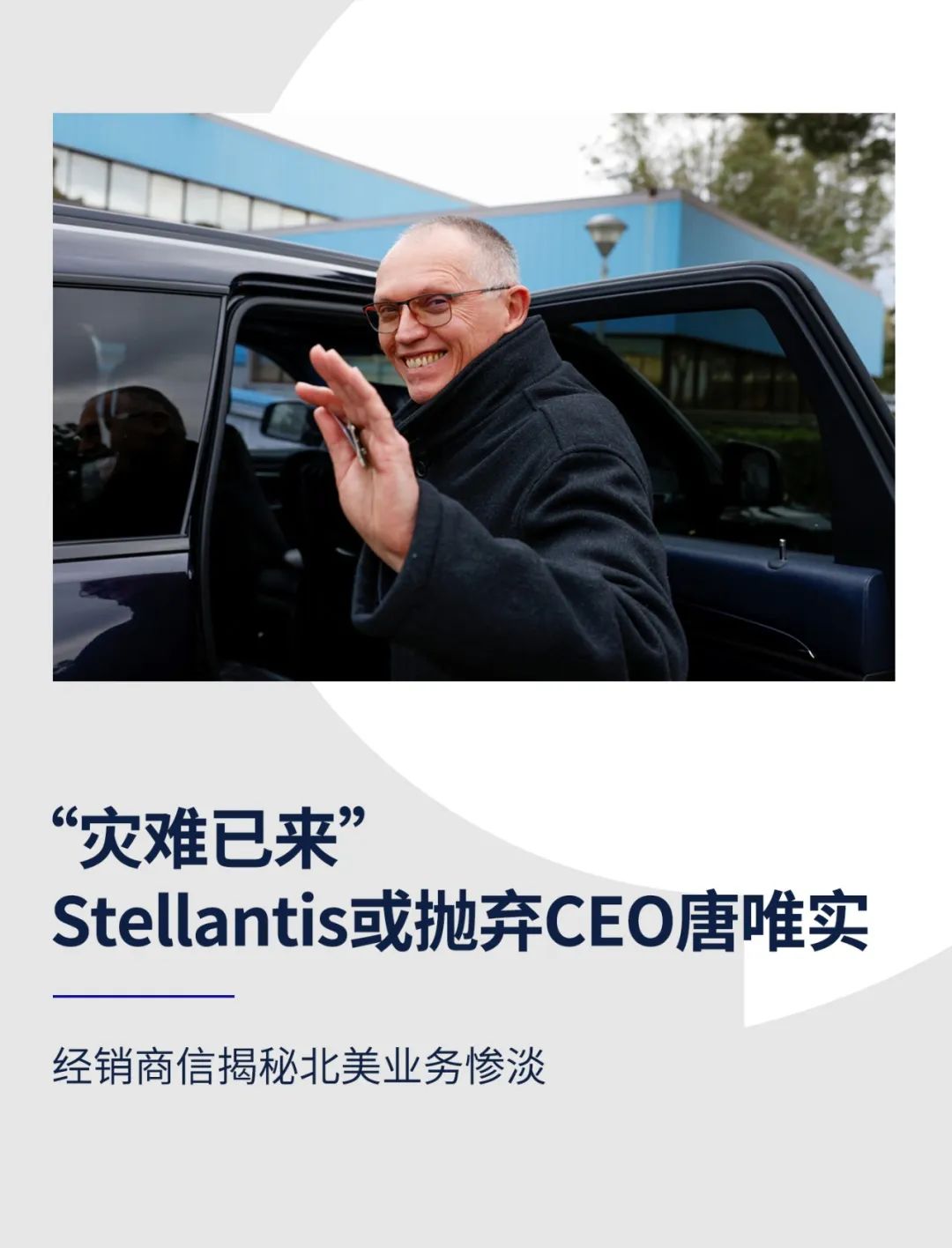
Compiled by Yang Yuke
Edited by Li Guozheng
Produced by Bangning Studio (gbngzs)
Stellantis Group is looking for a successor to Carlos Tavares.
Tavares took charge of the bankrupt PSA Group in 2013. In 2021, he led the integration of PSA and FCA, forming Stellantis Group and becoming the world's fourth-largest automaker.
According to the cooperation agreement, Tavares served as CEO of the new Stellantis Group for the first five years. On September 23, Stellantis issued a statement stating that Tavares' five-year contract had just over a year left before expiring in 2026.
The statement said, "Given the importance of the position, it is normal for the board to study this issue with the necessary expectations, and it will not affect future discussions." The company added that Tavares might also stay longer.
According to insiders, John Elkann, Chairman of Stellantis, is increasingly dissatisfied with the situation in North America. Elkann is also CEO of Exor, Stellantis' largest shareholder.
North American operations have been Stellantis' primary source of profit, but sales have been slowing this year, and the market has struggled with high inventory, quality issues, and declining market share. Several executives have also left. The company's share price has fallen by more than a third this year.
Erik Gordon, a professor of business and law at the University of Michigan, said that Stellantis' confirmation of a search for a successor could indicate that the board has reached an agreement to replace Tavares.
Gordon explained, "They realize that it is best for Stellantis to have a new CEO. Stellantis has taken a significant hit in the US."
He believes that companies generally replace leaders peacefully and organically. "They don't want the process to seem chaotic or panicked. They want it to appear normal and responsible," he said.
As Stellantis struggles with weakening demand for electric vehicles and increased competition from Chinese manufacturers, 66-year-old Tavares has implemented stringent cost-cutting measures. He has postponed the launch of some factories, laid off union workers, and offered buyouts to salaried employees.
However, Stellantis reported on July 25 that net profit for the first half fell 48% year-on-year; sales in the US fell nearly 16% in the first half, despite a 2.4% increase in overall new vehicle sales.
On September 10, US dealers sent a strongly worded letter to Tavares, expressing deep disappointment in his management of the company's US brands and accusing him of mismanagement. Dealers pointed to the "rapid decline" of Chrysler, Dodge, Jeep, and Ram brands, arguing that a series of decisions had negatively impacted the business and customer experience.
When Stellantis informed the United Auto Workers (UAW) that it would postpone plans to reopen a factory in Belvidere, Illinois, and build a new electric vehicle battery plant, UAW President Shawn Fain threatened a strike and called for Tavares' dismissal.
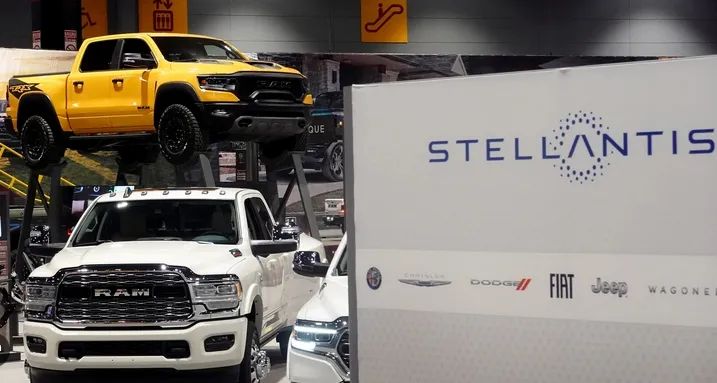

Crisis in the US Market
In the US, Tavares has faced pressure from both dealers and the UAW, who agree that he has mismanaged the world's fourth-largest automaker.
Dealers said "reckless short-term decisions to ensure record profits in 2023" had left them demoralized. With US market share plummeting and inventory piling up, the UAW was angry about layoffs and threatened strikes, arguing that Stellantis had violated commitments.
Meanwhile, several US executives, including brand leaders at Jeep, Dodge, and Ram, have left the company in recent months. Shareholders have filed lawsuits over declining profits in the first half of the year, and pricing disputes with several suppliers have escalated into unusual legal battles.
This turmoil comes as Stellantis pushes forward with an expensive and uncertain electric vehicle offensive. Several electric vehicles are expected to reach dealers in the coming months, but Stellantis retailers are still struggling to clear previous inventory.
On August 28, Tavares flew to the US to address the crisis facing his group in the market. Elkann also joined Tavares on his US trip. Elkann's presence at this critical juncture was to fulfill an institutional and representative role.
During Tavares' visit to Detroit, about 200 UAW members gathered outside the Sterling Heights Assembly Plant, prepared to demand answers. However, Tavares did not meet with them, staying in the office with Elkann, fueling union anger.
In a letter dated September 10, the Stellantis National Dealer Council criticized Tavares' leadership and accused him of raising his salary by 56% last year. The letter stated, "It's time to resume production and start gaining significant market share through sales."
Ralph Mahalak Jr., who owns Stellantis dealerships in Florida, Michigan, and Ohio, said, "We've never seen anything like this before and don't understand what's happening. How did we get into this mess? How did Tavares anger shareholders, suppliers, and dealers?"
Mahalak hopes to see more proactive incentives to address the inventory surplus that plagues retailers. Since May, the dealer council has sent at least two letters to Tavares on this issue. After the first letter, Tavares met with leaders of the Detroit dealer council.
Mahalak said, "I've never felt so out of control of my business as I do today. During the financial crisis, I had more control over my business. A few years ago, during the chip shortage and COVID-19 pandemic, I felt more in control of my operations."
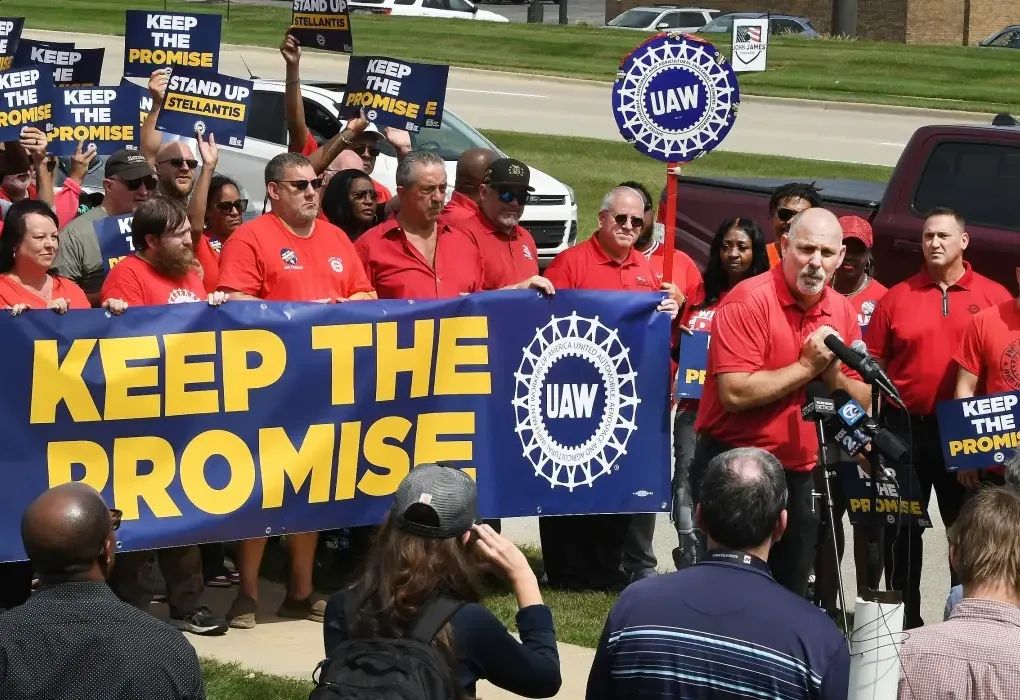
Stellantis said it has been working with retailers to boost sales. In August, the company launched an action plan developed jointly with dealers and claimed it had produced positive results.
The company said sales increased 21% in August from July, market share rose 0.7 percentage points, and inventory decreased by about 10% for the second consecutive month.
For example, in the US, Stellantis had over 430,000 vehicles in inventory at the end of June. This figure decreased by 40,000 in July and August, and the company has set a goal of reducing inventory by 100,000 by early next year. Stellantis has pledged to continue reducing inventory in September and throughout the year.
Stellantis said in a September 11 statement, "This is the result of our collaboration with the dealer network, and we want to thank them for their ongoing support and participation. We meet and talk every month, have weekly phone calls, and conduct private conversations at the highest levels."
Stellantis stressed that personal attacks, such as open letters criticizing Tavares, are not the most effective way to solve problems. The company said it would continue to work with dealers to avoid any public disputes that could hinder its performance.
Insiders revealed that the Stellantis board will meet in the US on October 9 and 10 to assess plans to turn around the region's business.
But some dealers said they couldn't afford to wait for the factory to make the right choices.
An anonymous dealer said, "We've received a lot of pleas for help, but we haven't gotten what we need fast enough. We're always chasing our tails. I'm tired of chasing my tail. Let's fix this once and for all."
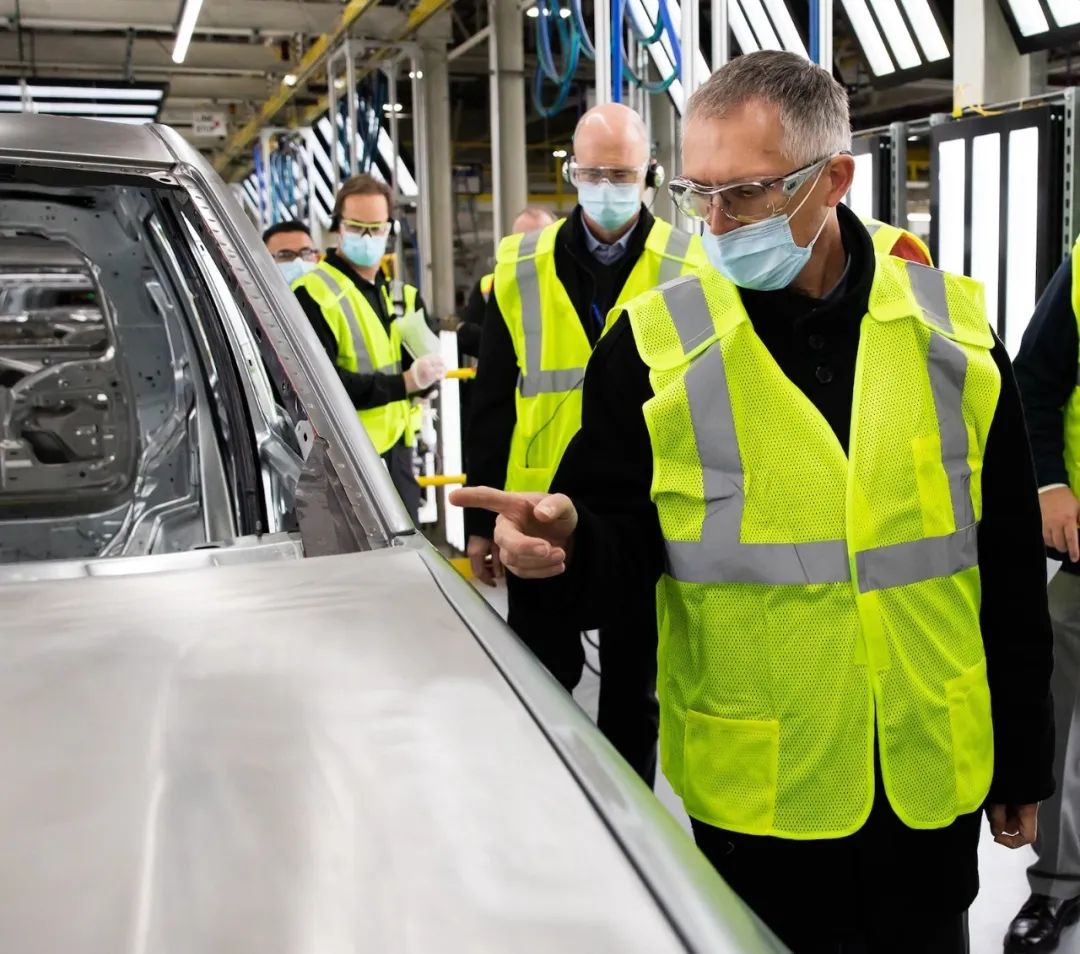
Stellantis also responded to Fain's attacks, who called its management "out of control." In a September 17 statement, the company denied Fain's claim that Stellantis planned to move Durango production out of the US.
The group said Fain had provided no evidence to support his claims that the company had violated its 2023 contract with the union, although it acknowledged that plans to reopen the Illinois assembly plant in 2027 were being postponed. This does not constitute a breach of contract, and the union cannot strike over product plan changes related to factory performance and external factors beyond its control.
The UAW has filed unfair labor practice charges with the National Labor Relations Board, accusing Stellantis of illegally refusing "to provide information about the company's plans regarding product commitments made in the UAW's 2023 collective bargaining agreement."
Stellantis explained that these commitments span the entire lifecycle of the contract, until April 2028, so the UAW should not expect them to be implemented in the first year.
"It benefits us all if these issues can be resolved through productive, mutually respectful, and forward-looking dialogue," Stellantis said. "Strikes benefit no one—our customers, dealers, communities, and most importantly, our employees."
In March, the company said it would lay off 400 white-collar workers in the US to manage the transition from internal combustion engines to electric vehicles. In November 2023, it offered buyouts and early retirements to 6,400 non-union salaried workers but did not disclose how many accepted the offers.
On August 15, Stellantis was sued in the US by shareholders who alleged that the European-American automaker deceived them by concealing rising inventories and other weaknesses before announcing disappointing earnings, causing share prices to fall.
The lawsuit, filed in the US District Court for the Southern District of New York, alleged that Stellantis artificially inflated its share price for much of 2024 by making "extremely positive" assessments of inventory, pricing power, new products, and operating margins.
Shareholders said that on July 25, Stellantis reported a 40% decline in adjusted operating income for the first half to €8.46 billion ($9.28 billion), below analysts' expectations of €8.85 billion.
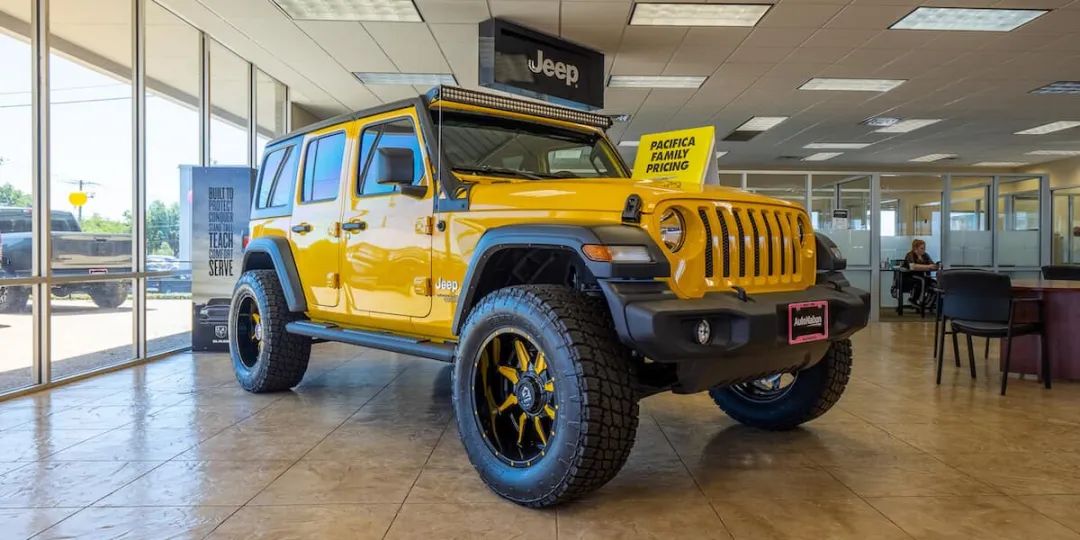

A Strongly Worded Letter
On September 10, Stellantis US dealers sent a harshly worded letter to Tavares, accusing him of making "disastrous choices" that led to a sharp decline in US sales and urging him to take "swift action" to regain lost market share. The letter was also copied to Stellantis Chairman Elkann.
The letter also criticized Tavares for prioritizing short-term profits over the long-term health of the brand. According to dealers, this approach boosted last year's profits and increased the CEO's compensation but ultimately eroded Stellantis' market share in the US.
One of their main complaints was the growing number of unsold vehicles on dealer lots. Despite Stellantis' efforts to clear inventory, such as price cuts and reintroduced incentives, dealers said these actions were insufficient. The letter also stated that the company's decisions to reduce marketing funds and change dealer compensation policies only worsened the situation.
The letter also emphasized that some of Stellantis' cost-saving measures, such as linking dealer compensation to vehicle shipments rather than sales and cutting co-op marketing funds, harmed dealer profitability. "All of these have adversely affected dealer profitability," it said.
Below is the original text of the letter, lightly edited by Bangning Studio.
Open Letter to Mr. Carlos Tavares, CEO of Stellantis Group
Dear Mr. Tavares,
We are writing to you on behalf of the entire US dealer network and its employees. The purpose of this letter is to sound the alarm – not only to you but also to the Stellantis board, your employees, your investors, and your suppliers. For over two years, the US Stellantis National Dealer Council has been warning your US executive team that the path you have set for Stellantis in the US will be a disaster in the long run. This disaster is not just ours but also that of all stakeholders – and now, the disaster has arrived. In 2023, you created record profits for Stellantis, earning you the title of the highest-paid CEO in the automotive industry. You personally made a record-breaking nearly $40 million that year. Unfortunately, the strategies and business models of that year have led us to this "disaster" scenario. Reckless short-term decisions to ensure record profits in 2023 have brought devastating and entirely predictable consequences to the US market. These consequences include the rapid decline of our iconic US brands – like Jeep, Dodge, Ram, and Chrysler, which have a century-long history in the US. Stellantis' market share in the US has almost halved, its share price has plummeted, factories have closed, layoffs have raged, and key executives have fled the company. Investor lawsuits, supplier lawsuits, strikes – the consequences keep piling up. Your own distribution network, your dealers, are in a state of anemia and weakness. Unfortunately, these are just the consequences we feel today. The sharp decline in market share will have long-term, painful financial implications for your parts manufacturing business. The pain will not be limited to Stellantis and its investors. Your dealer network, their employees, your suppliers, and most importantly, your own employees – everyone will suffer the consequences of these disastrous choices. The time has come for your decisions to achieve these profits in 2023 to be settled, and frankly, your attempts to rely on employees, dealers, and suppliers to achieve a soft landing are misguided. We (dealers) did not create this problem, nor did the US federal government, the United Auto Workers union, or your employees. You created this problem. Over time, it will only get more expensive and serious, so we urge you to stop delaying and do the right thing now. It's time to resume production, start selling, and regain significant market share. Put your employees, our employees, and your suppliers' employees back to work by manufacturing and selling cars that Americans want and can afford. Let's clear out this old inventory now and get the factories humming at full capacity. Yes, in the short term, Stellantis will suffer, but mistakes of this magnitude are bound to be painful. We don't want your apologies or so-called resignations – those won't put people back to work. We simply ask that you do the right thing: write checks, pay bills, and let's move forward. The Stellantis National Dealer Council meeting will be held at its Auburn Hills headquarters on October 15. We hope you can attend, work with your executives, and spend the entire day with your dealer council to jointly strive to make Stellantis and its brands a worthy great automotive company once again. Chairman, Stellantis US Dealer Council September 10, 2024
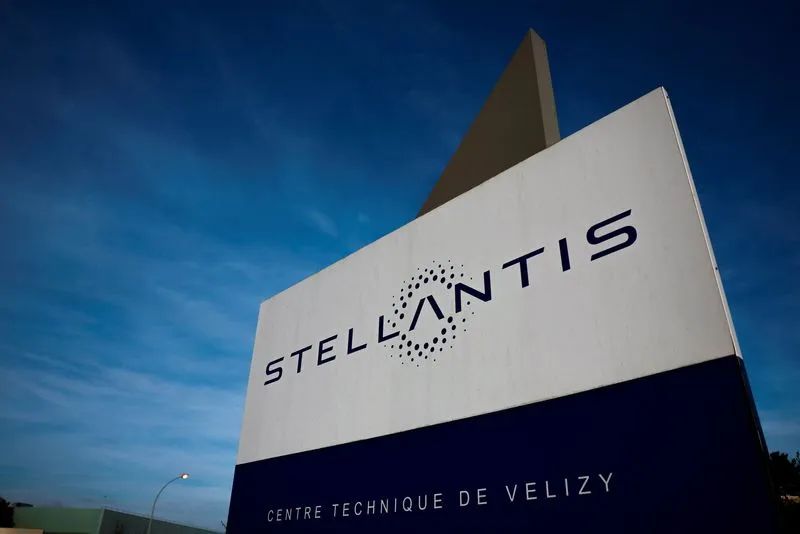

Disappointing First-Half Performance
On July 25, the Stellantis Group announced a significant decline in net profit for the first half of the year due to reduced sales, temporary production shortfalls, and a decrease in market share in North America.
The company, which owns household names such as Jeep, Dodge, Fiat, Chrysler, and Peugeot, reported a net profit of €5.6 billion (approximately $6.07 billion USD) for the first half, a steep 48% drop compared to the same period in 2023.
Stellantis' operating income, including that of its Citroën, Peugeot, and Vauxhall brands, also plummeted from €14.1 billion to €8.5 billion in the first six months of 2024, a €5.6 billion year-over-year decrease primarily attributed to the decline in North American operations.
According to data from research firm Cox Automotive, vehicle sales in the United States for Stellantis' top brands, Ram and Jeep, have declined by at least 33% from the first half of 2019 to the same period this year.
Another concerning metric is cash flow, which has plummeted from €13.39 billion to €4.89 billion within just one year, a staggering 63% decrease.
Carlos Tavares acknowledged that the results "did not meet expectations," attributing the poor performance to a "challenging industry environment" and the company's own "operational issues," including a sharp decline in the North American market.
Tavares stated, "Our performance in the first half of 2024 did not meet our expectations, reflecting both a challenging industry environment and our own operational issues."
In media interviews, Tavares expressed that many of the company's problems stem from its American operations, which he previously said were impacted by "arrogant mistakes" related to vehicle inventory levels, manufacturing issues, and sales strategies.
Tavares self-critically admitted that he had not acted swiftly enough when the problems in the Group's North American operations piled up.
"I was arrogant in the past," he said at Stellantis' Investor Day in Michigan. "I'm talking about myself, not someone else."
Just prior to these results, Tavares had received a compensation package from Stellantis for 2023 amounting to €36.5 million (approximately $40.6 million USD), marking a 56% increase from the previous year.
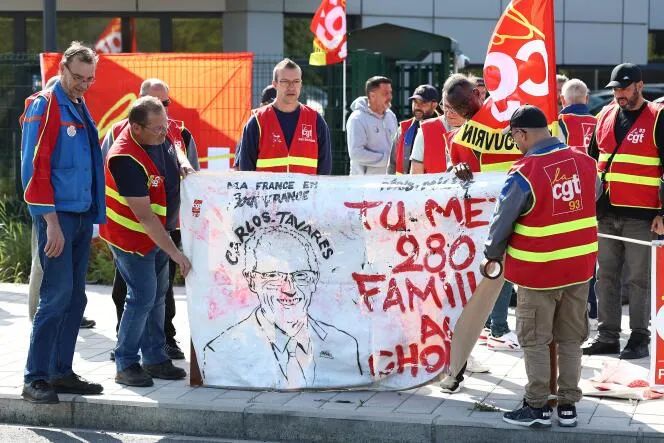
According to Jefferies analyst Philippe Houchois, Stellantis' primary mistake in North America was continually raising prices to increase profit margins even when market signals indicated that customers were not yet ready to pay, making some of Stellantis' models overly expensive.
Houchois believes that Stellantis lacked a pragmatic approach to addressing the issue of increasing inventory and should have adopted more reasonable pricing strategies to avoid this situation.
Massimo Baggiani, the founder of London-based niche asset management firm LGM Investments, stated that Tavares remains "the best executive in the industry." "For him now, maintaining financial discipline is key. He needs to prove that he can increase vehicle sales without compressing margins, losing money, or burning cash," Baggiani said.
In the first half of this year, Stellantis' sales in the United States decreased by approximately 16%. Last year, it was the only major automaker in the US to experience a sales decline compared to 2022.
The company's market share in North America during the same period was 8.2%, a decrease of 1.8 percentage points.
Despite ongoing issues, Stellantis reiterated its 2024 guidance, including adjusted operating margins reaching double digits, positive industrial free cash flow, and returning at least €7.7 billion in capital to investors through dividends and buybacks.
Tavares expects the company to achieve these goals with the help of launching 20 new models this year, addressing issues in the US market, and further price reductions to boost sales.
"This is a very tough industry, a very tough period, and everyone has to fight for performance," Tavares said. "We must strive to achieve this goal."
(This article incorporates content from Automotive News, Reuters, Bloomberg, Ottumwa Courier, Mopar Insiders, and CNBC, with some images sourced from the internet.)








